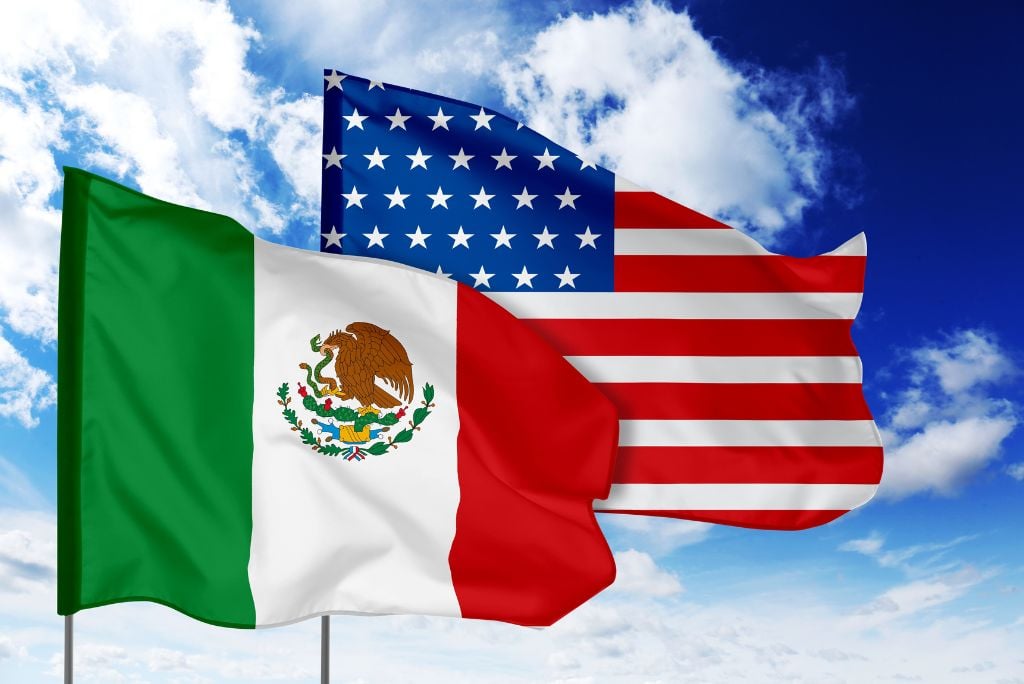In the contemporary economic landscape, the longstanding influence of historical power blocs continues to shape international relations, even decades after the Cold War. This sentiment was articulated by Mexico’s economic secretary, Marcelo Ebrard, who acknowledged the escalated tensions between China and the United States. He stated that amidst potential trade confrontations, Mexico would align itself with the United States, its primary trading partner and largest importer. Ebrard’s assertion reflects both an awareness of the shifting dynamics in global trade and an intention to solidify Mexico’s position within the North American economic framework. He emphasized the need for a cohesive strategy to mobilize legitimate interests aimed at strengthening the region’s economic ties and enhancing national competitiveness.
The competitive nature of Mexico and China within the U.S. market is increasingly apparent, as illustrated by Mexico’s recent achievement in becoming the leading exporter of products to the United States for the first time in decades. Ebrard characterized this shift as a “wind in Mexico’s favor,” presenting an optimistic narrative that coincides with the launch of a new administration. This shift is particularly significant in the context of rising concerns about the ruling party’s potential drift towards more authoritarian models, similar to that of Venezuela. By portraying Mexico as a robust market participant that values free trade principles, the government seeks to reassure both its domestic audience and neighboring countries regarding its economic direction and intentions.
In addition to the competitive landscape, statistics further underline the primacy of the United States as Mexico’s main supplier, with a market share of 42.7% in 2023, compared to China’s 19.1% and Germany’s 3.5%. These figures highlight the continued significance of the trade relationship within North America, being bolstered by regional agreements like the United States-Mexico-Canada Agreement (USMCA). Ebrard’s comments at the recent business forum also indicate a strategic focus on nearshoring as a means of optimizing production capabilities and supply chains. Nearshoring refers to the practice of relocating production to nearby countries, allowing for reduced logistical burdens and better time management, contrasting with offshoring practices that favor more distant locales.
The concept of nearshoring is poised to play an essential role in Mexico’s economic strategy moving forward, with Ebrard underscoring its importance in effectively capitalizing on emerging market opportunities. The strategy seeks to enhance manufacturing capabilities in Mexico, leveraging the geographical and cultural proximity to the U.S. to optimize trade relations. This approach is further driven by rising costs and geopolitical considerations, which make the U.S.-Mexico trade relationship more attractive than engagement with China. Ebrard’s vision for nearshoring exemplifies a proactive, forward-thinking perspective intended to solidify Mexico’s position as a strategic partner to the U.S., while simultaneously diminishing the economic clout of China in the region.
Moreover, Mexico’s renewed commitment to strengthening its economic partnership with the United States is a calculated response to the evolving global environment marked by trade tensions and shifting alliances. The alignment with the U.S. not only reflects Mexico’s economic ambitions but also serves as a counterbalance to China’s growing influence on the global stage. By fostering a favorable trade environment, Mexico aims to attract foreign investment and bolster local production industries through nearshoring, ultimately enhancing its economic resilience. This strategic pivot is not merely an economic decision but a political one, aiming to project stability amid growing concerns about authoritarianism.
In summary, as Mexico navigates the complexities of international trade, the emphasis on strengthening ties with the U.S. signals a strategic choice in light of increasing competition from China. Marcelo Ebrard’s advocacy for nearshoring and the reaffirmation of Mexico’s positioning as a key ally to the U.S. reflect broader trends in global trade dynamics. This approach, informed by economic pragmatism and geopolitical realities, aims to reinforce Mexico’s economic viability while fostering a collaborative North American economic environment that benefits all stakeholders involved. As such, this moment represents a pivotal juncture in which Mexico can define its role within the competitive landscape of global trade, strengthening its economic base while addressing pressing domestic and regional challenges.

